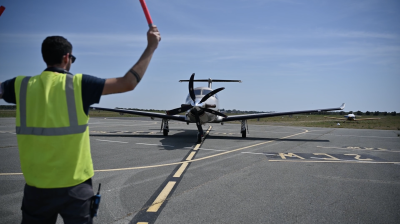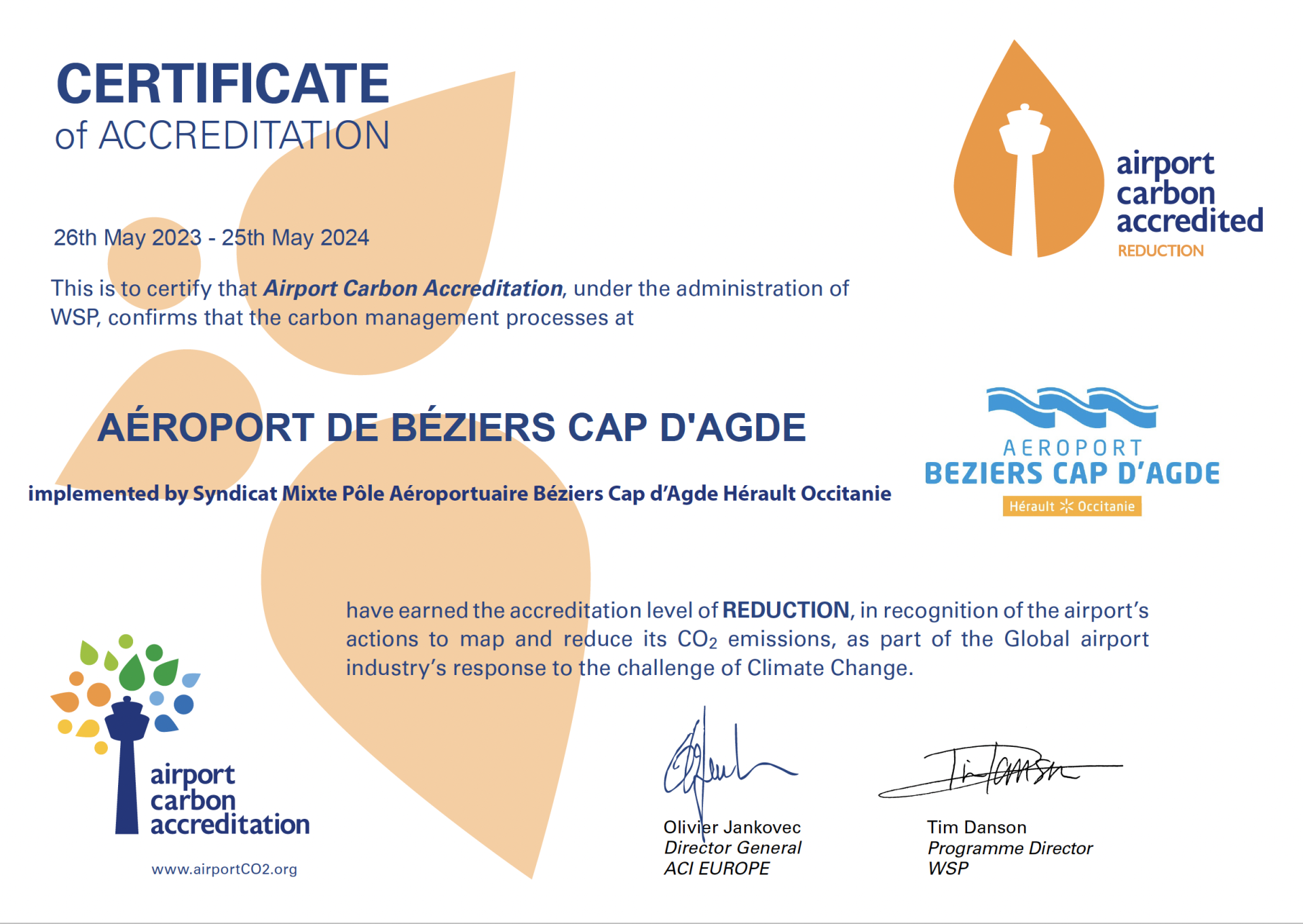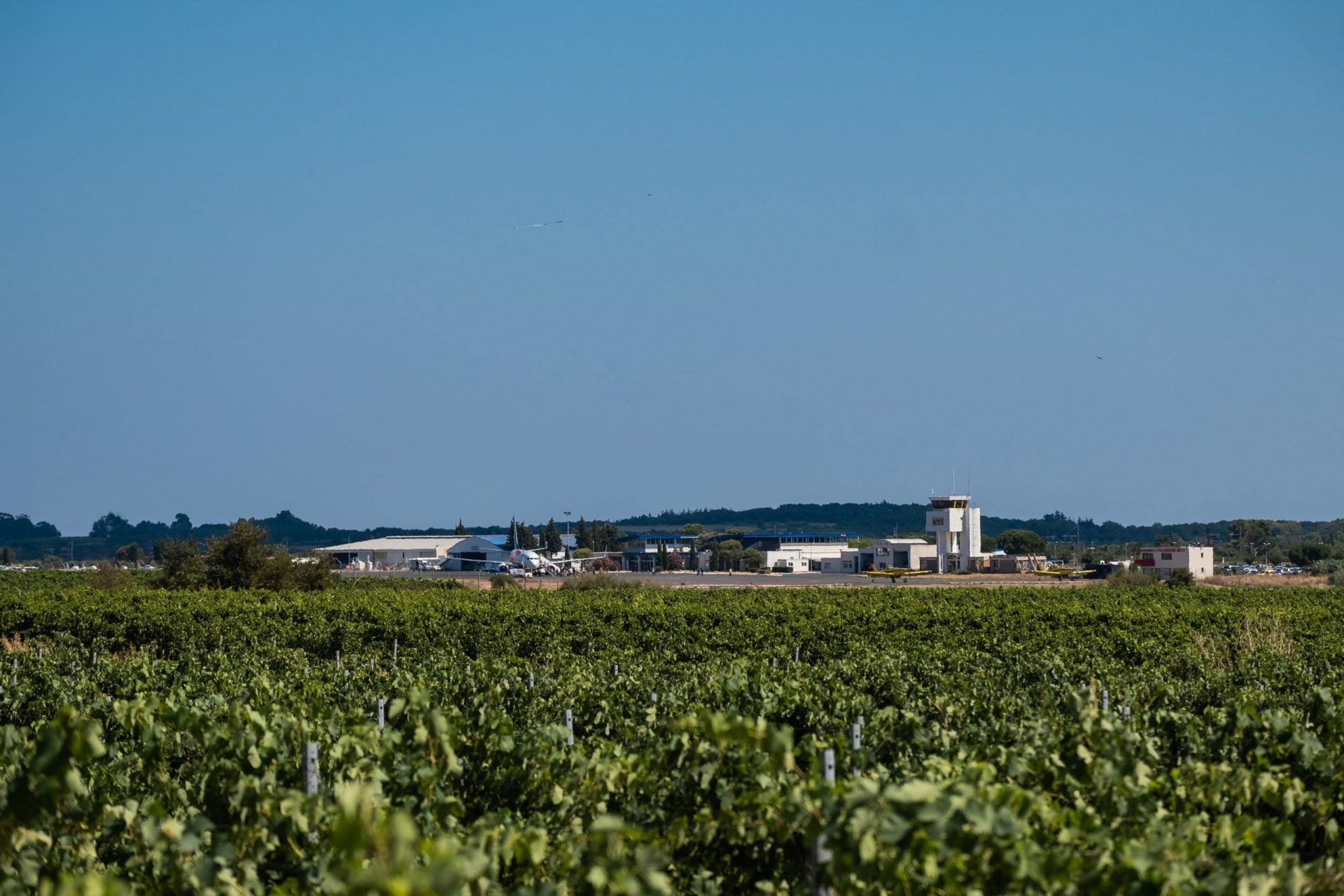
Aviation, often under fire for its environmental impact, is resolutely committed to the fight against climate change. Airports play an essential role in this process by seeking to reduce their carbon footprint and preserve biodiversity. Béziers Cap d'Agde Airport perfectly illustrates this commitment by implementing initiatives to contribute to a more sustainable future.
Béziers Airport and Carbone Accreditation Airport
One of the first steps undertaken by Béziers Airport is obtaining Airport Carbon Accreditation. This approach consists of identifying carbon dioxide (CO2) emissions linked to airport activity and developing an action plan to reduce them.
A first step was taken in June 2022, with obtaining the first level of certification, ACA 1, which consists of referencing the CO2 consumption of the platform. The balance sheet showed 55 tonnes of CO² equivalent for the year 2019. A figure mainly due to fuel consumption.
In 2023, the airport passes the second stage, ACA 2, by presenting an action plan including in particular:
- Replacing the bulbs of the entire structure to switch to low-consumption LED bulbs
- Training of agents on a climate timeline
- Ultimately, the replacement of track equipment with electric vehicles
Béziers Cap d'Agde airport is aiming to reduce its CO50 emissions by 2% by 2030, and is setting itself a goal of carbon neutrality in 2050.
Preservation of Biodiversity at Béziers Airport
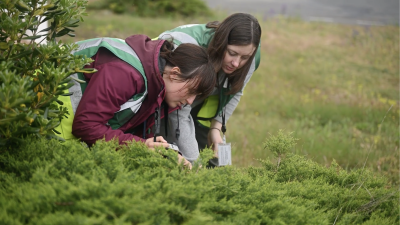
Another aspect of Béziers Airport's environmental approach is the preservation of biodiversity. A partnership has been established with Aerobiodiversity, an organization specializing in airport biodiversity with the aim of referencing and protecting the species present.
The association's naturalists work in partnership with the animal danger prevention services (PPA) of the airport firefighters. The latter monitor the fauna and flora of the platform on a daily basis in order to ensure flight safety (for example by avoiding collisions with animals during take-off and landing phases).
You might think that airports are hostile environments for wildlife, but it turns out that these areas are on the contrary more welcoming to many species than urbanized areas. Surveys carried out on the airport platform reveal a rich and often peaceful biodiversity. The airport, made up of 75% natural spaces, has two distinct environments: meadows and scrubland. This diversity favors the presence of a variety of animal and plant species, including the fox, the bustard, etc.
Still in the context of nature preservation, the airport has been “Zero Phyto” since 2018. Phytosanitary products have been replaced by regular mowing and maintenance of the infrastructure.
Béziers Airport, a Renewable Energy Hub
In terms of energy, Béziers Airport also stands out. Thanks to a photovoltaic park installed above the car parks, it injects more electricity into the network than it consumes.
In 2022, the airport produced more than 600 megawatt hours of electricity while consuming only 000 megawatt hours. This surplus situation contributes to achieving carbon neutrality.
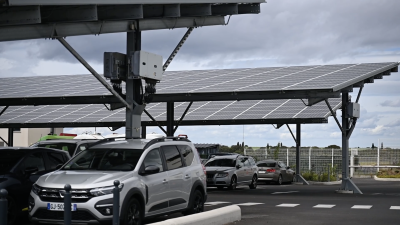
Towards a Greener Future for Aviation?
Let's look to the future with optimism! Aircraft manufacturers are actively working on electric planes, biofuels, and even hydrogen planes. These promising technological advances herald a more environmentally friendly aviation.
Until then, Béziers Airport, through its commitment to reducing CO2 emissions, preserving biodiversity and producing renewable energy, demonstrates that the airport sector is committed to the fight against climate change. This example shows that European airports are resolutely focused on a greener future, thus contributing to more sustainable air transport for future generations.
